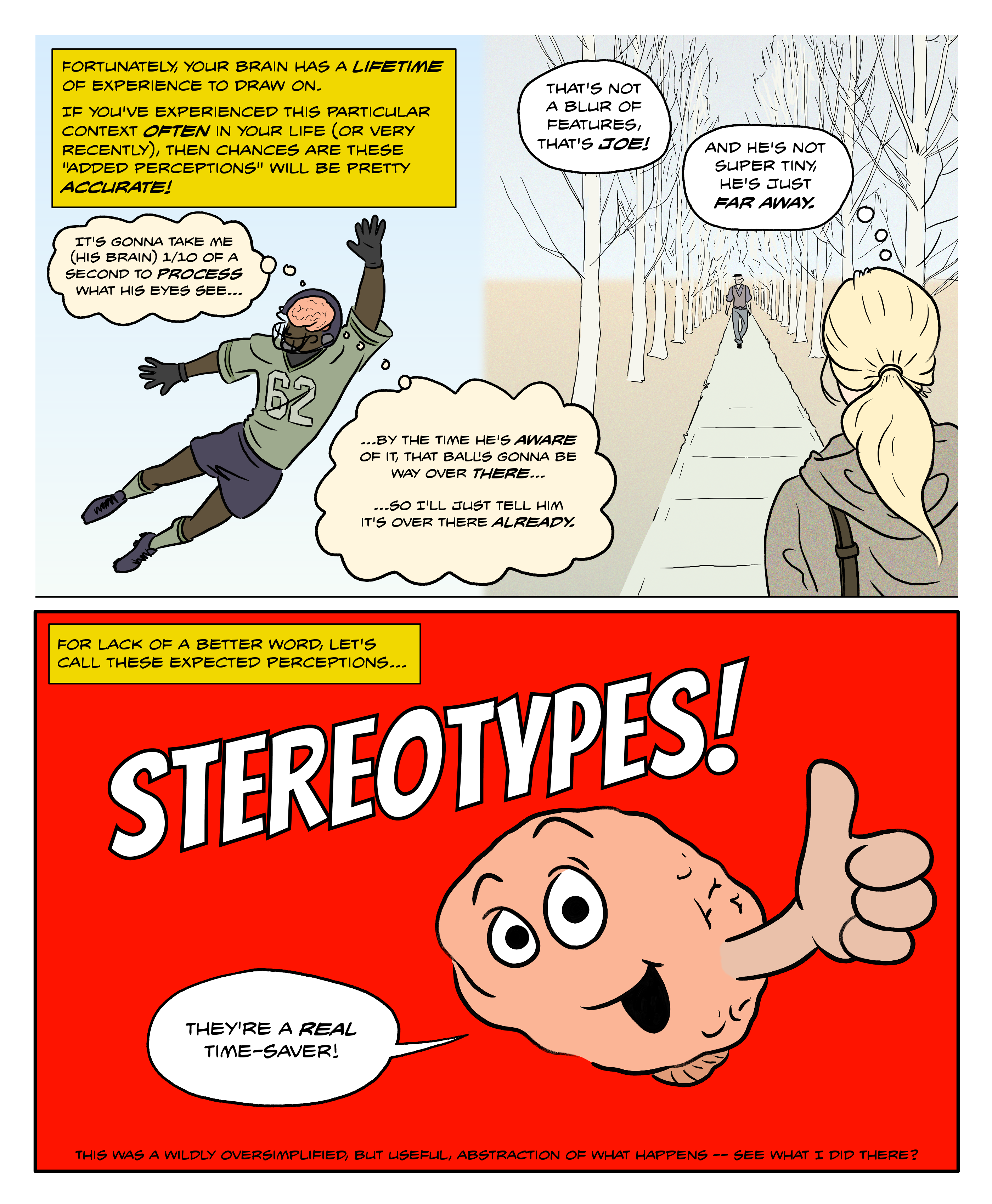|
This is a purely educational website. Nothing here is legal advice or creates or implies an attorney-client relationship. If you have a specific legal issue, PLEASE talk to a lawyer who practices where you live—laws vary from place to place, and how they're applied varies from courthouse to courthouse. Your local county bar association can probably refer someone who handles matters like yours.
By using this site, you agree that you are awesome. Use of this site also constitutes acceptance of its Terms of Service and Privacy Policies, which are known to medical science as a cure for insomnia.
It's best to keep all discussions in the comments. But if you really need to reach Nathan privately, go ahead and email him at n.e.burney@gmail.com. He won't mind.
THE ILLUSTRATED GUIDE TO LAW and the PEEKING JUSTICE logo are pretty damn cool trademarks and should probably be registered one of these days.
© Nathaniel Burney. All rights reserved, though they really open up once you get to know them.
|
|






I can totally see that last panel taken out of context someplace.
Maybe “preconceptions” might be a better word.
Neither word gets across a meaning that’s not somehow damaging. I’m pretty sure that’s the entire point of that word being used.
In the second frame, why are the trees and sky milk white? Does it mean that the person with the pony tale does not notice the details of the trees or sky because they are focused on Joe?
Maybe they are birch trees and it is a bit overcast?
That was what I was thinking. The sky and the trees are more or less “colored in” by the brain, since the focus is on Joe.
They don’t have winter where you live, now do they?
We used to have winter. But then global warming happened.
But then everything changed when the Fire Nation attacked.
More to the point, until I read this comment, I thought that panel had green leaves on the trees and a blue sky, because I WAS focused on Joe.
I think the better word for the last panel is “heuristics”.
It’s a great word, but not exactly what I’m talking about. We’re going to be looking more at prototypes than mental shortcuts. (Or to put it another way, not so much at cognitive assessment as at mechanical processes.)
“So why didn’t you just say ‘prototypes’?” Partly because “stereotypes” is a loaded word that’ll stimulate active reading, partly because more people are familiar with it, but mostly because (as I hope will be clear in the coming pages) it really is the best description of some things that go on in the brain during face processing and recognition. Which is what everything so far has been building towards.
—–
For those just now encountering the word “heuristics” for the first time, think of it as a fancy word for “a rule of thumb.”
In psychology, it’s used to describe things like how you evaluate risks and probabilities. For example, when judging the risk of a child being abducted, many Americans think the risk is astronomically higher than the actual probability, because the rare instances get reported on TV so much. When you consider letting your kids walk to the park by themselves, your brain doesn’t focus on whether any kids have ever been abducted in your neighborhood, but instead pulls up all those news reports as evidence of risk, resulting in an unnecessary and unwarranted concern. (The same kind of thing led to our panicked decimation of the shark population in the years since the movie “Jaws” came out. The minuscule risk of shark attack became seen as highly likely, because of this “availability heuristic.” No lie.)
(In computer science, the word is used specifically to refer to rules of thumb that get you “close enough” to the right answer, without having to waste time doing all the calculations in between. But that’s not the usage Darren is probably referring to.)
This is not the same thing as what I’m talking about when I refer to “stereotypes” above. Heuristics involve judgment calls and the inference of data — your mind calculating what is more likely to be true. Stereotypes don’t involve assessments of probability, but are instead an automatic insertion into your perceptions and memories of those signals that are strongest because they just happen to be most usual (or recent).
Now social stereotypes can certainly be involved in heuristics. Someone who dresses like a flower child, listens to new age music, and talks about astrology all the time? People are more likely to say she’s a holistic healer than a school teacher, because she fits that social stereotype — even though the actual probability of her being a school teacher is orders of magnitude higher, there being vastly more school teachers in the world than holistic healers. We use a rule of thumb about what kind of person she might be to assess the probability of what she does for a living.
The neurological stereotype would be more like remembering that she was wearing a tie-dye dress when in fact it was a plain print, when you hadn’t really paid much attention to it, and your brain fills in what it must have been.
I’m guessing that you know the original meaning of the word, and have picked the term with care.
Wikipedia|Stereotype|printing
Yup. My grandfather was a printer, and I got my own hands dirty (well, stained, anyway) operating the process camera for the newspaper when I was an undergrad.
I was amused to recently discover that the French name for that printing process is apparently “cliche”. Makes an odd sort of sense that both languages extended it metaphorically to similar mental processes. (Yeah, grew up next door to a print shop)
Real-world example (via ACM RISKS) https://www.nytimes.com/2015/05/15/nyregion/witness-accounts-in-midtown-hammer-attack-show-the-power-of-false-memory.html?_r=0